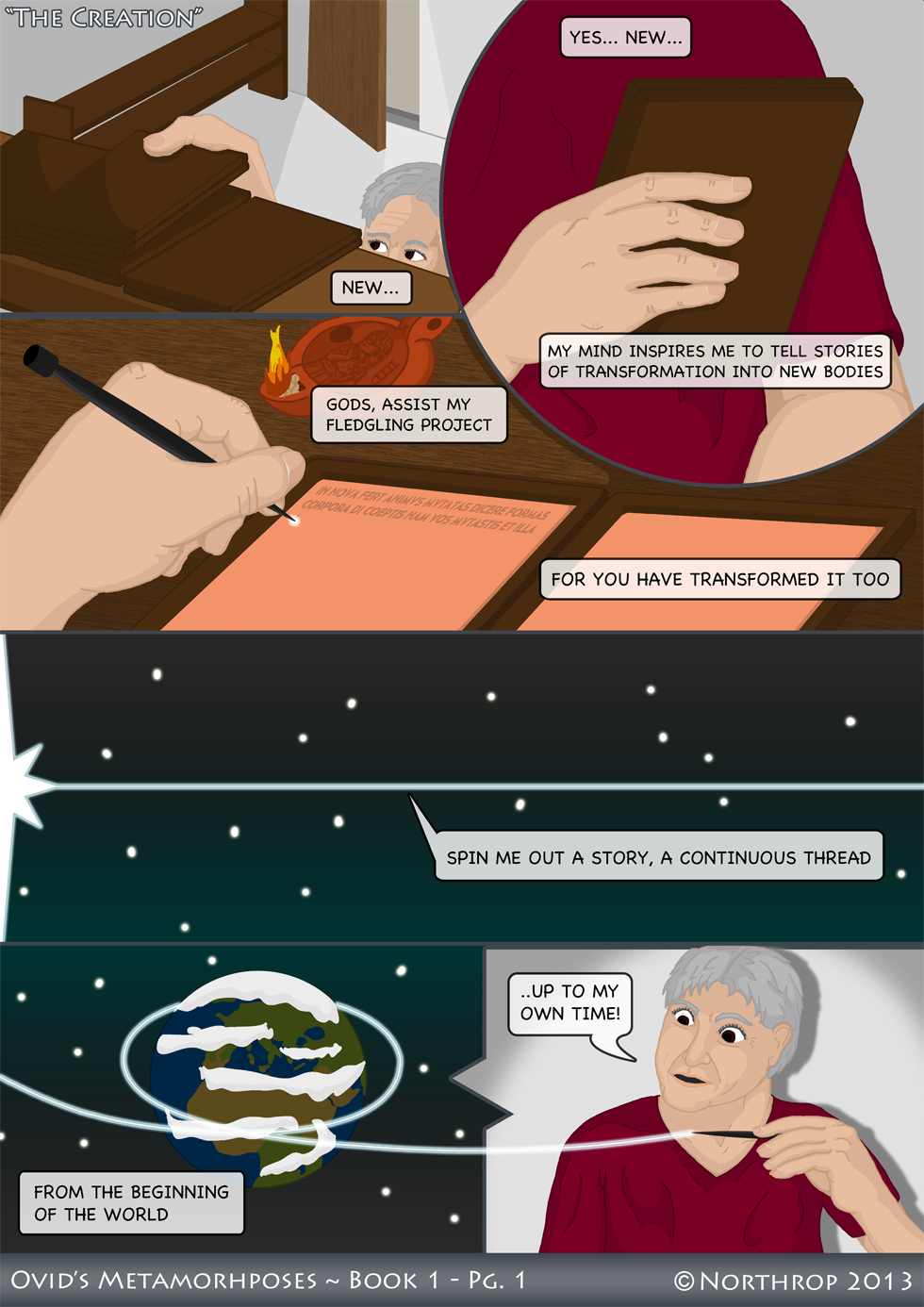Met. 1.1-4 – Proem and Creation
Hello! My name is Charlotte and this is my comic! Well, it’s not entirely my comic… I am translating and adapting a 2000+ year old Latin poem called the Metamorphoses. It’s written by a real awesome dude named Ovid, who lived approximately 43 BCE – 17/18 CE – so, really, he should get the writing credit… I’ve modified some things here and there, so I will always post the corresponding lines of the poem below, along with my translation. (Latin nerds: feel free to email me and criticise my translation!) It is my stated goal to remain as faithful to the poem as possible, but I do like to make it accessible to modern audiences at the same time. So, check the Latin and throw something at me if I deviate too far!
I’m also doing a little PhD dissertation on this poem, so I will gush about the poem and the context below, if you fancy a gander at my ramblings…
IN NOVA FERT ANIMUS MUTATAS DICERE FORMAS
CORPORA; DI, COEPTIS (NAM VOS MUTASTIS ET ILLA)
ASPIRATE MEIS PRIMAQUE AB ORIGINE MUNDI
AD MEA PERPETUUM DEDUCITE TEMPORA CARMEN.
MY MIND LEADS ME TO SPEAK OF FORMS CHANGED
INTO NEW BODIES; GODS, INSPIRE MY UNDERTAKING (FOR YOU HAVE CHANGED IT ALSO)
AND, FROM THE VERY BEGINNING OF THE WORLD,
LEAD MY SONG UNBROKEN DOWN TO MY OWN TIMES.
By far the shortest proem in epic history (for those who don’t know, a “proem” is essentially the introduction to a poem). Homer’s Odyssey had 10 lines, and Vergil’s Aeneid had 11! Ovid gives him poem a paltry 4-line introduction. However, its short length belies its grand ambition: Ovid’s goal is no less than a cosmic history. Let Homer and Vergil wax lyrical about their cry-baby men in their little dingies! Ovid looks down at them from on top of the stars…

I know I should not encourage you to take time from your dissertation, but these drawings are FANTASTIC. My myth students and I enjoy them and look forward to your next installments.
Aw, thanks Suzanne :3 I try to do a little work on the comic each night, after I burn out on dissertation work. I have the next page almost done – hopefully it will be up on Monday! Say hi to your myth students for me, and thanks for reading and commenting!
This is really wonderful and a labor of love